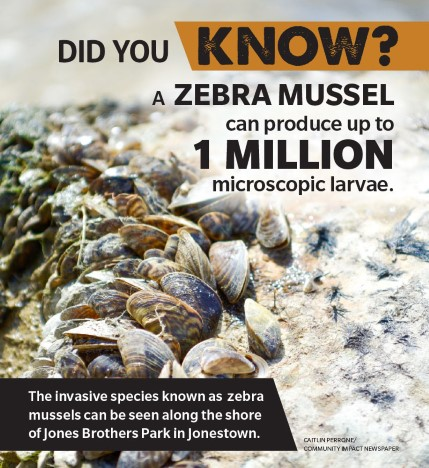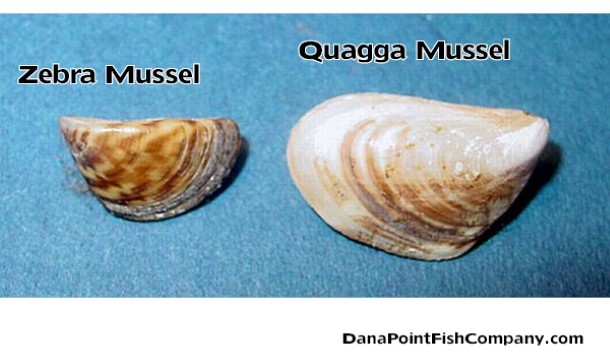
Cleaning and preventing quagga and zebra mussels on paddle boards.
Key Highlights:
- Understanding the Threat: Quagga and zebra mussels pose significant risks to aquatic ecosystems, filtering out vital nutrients and attaching to surfaces, including paddle boards.
- The Clean, Drain, Dry Method: Effectively prevents the spread of aquatic invasive species by thoroughly drying your paddle board and gear in sunlight or a hot environment for at least five days.
- Decontamination Steps: Rinse your SUP with fresh water, use a brush or sponge for scrubbing, apply a pressure washer if available, wipe down with a cloth, use a disinfectant solution, and dry thoroughly.
- Equipment Check: Regularly inspect your paddle board for signs of mussels or other aquatic species and remove them promptly. Consider using specialized products designed to combat quagga and zebra mussels.
- Impact Awareness: Recognize the environmental and economic damage caused by aquatic invasive species, including displacement of native species and disruption to water supply systems.
- Preventative Measures: Decontaminate paddle boards and gear after each use, understand and follow local regulations, and stay informed about areas affected by invasive species.
- Glide's Eco-Friendly Commitment: By choosing Glide's environmentally conscious SUP designs, you're supporting sustainable practices that help preserve waterways for future enthusiasts.
Quagga and zebra mussels are small, freshwater bivalve mollusks that can cause significant ecological and economic damage when they become established in a new environment. They are native to the Caspian Sea and have spread to many other countries, including the United States. Quagga and zebra mussels can attach themselves to hard surfaces, such as boats, docks, and paddle boards, and can quickly colonize and spread to other areas. They can filter large amounts of water and quickly deplete the available food sources for native species.
Clean Drain Dry: Prevent the Spread of Aquatic Invasive Species
It is important to dry dock the paddle board after each use. This includes drying the board and any equipment in direct sunlight or in a hot environment for at least five days. This will help to kill any mussels that may be present and will prevent them from spreading.
In addition to cleaning and drying the paddle board, it is important to inspect it regularly for any signs of mussels or other aquatic species. If any mussels are found, they should be removed immediately. It is also important to use products that are specifically designed to prevent the spread of quagga and zebra mussels
How to Decontaminate a SUP to prevent the spread of Aquatic Invasive Species (AIS)
1. Rinse off your SUP with fresh water. This is the most important step in decontamination, as it will help remove any visible debris or organisms that may be clinging to your board. Make sure to rinse off the sides and bottom of your board as well as any accessories you may have attached to it (e.g. fins, foot straps, etc).
2. Use a brush or sponge to scrub your board. This will help to remove any organisms that are not visible to the naked eye, such as AIS larvae or eggs.
3. If you have access to a pressure washer, use it to spray down your board. This will help to remove any stubborn organisms that may be clinging to the board.
4. Use a cloth or towel to wipe down your board. This will help to remove any remaining debris or organisms.
5. Use a disinfectant solution to disinfect your board. This will help to kill any remaining organisms and help prevent their spread. Make sure to follow the instructions on the product's label.
6. Dry your board thoroughly. This will help to ensure that any remaining organisms are not able to spread.
By taking these simple steps, you can help to prevent the spread of AIS and keep your SUP free of any unwanted organisms. It is also important to remember to decontaminate any other equipment you may be using, such as paddles, life jackets, and other accessories. By taking these precautions, you can help to protect our waterways from the harmful effects of AIS.
What are the Impacts of Aquatic Invasive Species?

Aquatic invasive species (AIS) are non-native plants, animals, and other organisms that can cause harm to the ecosystems of both fresh and saltwater locations. AIS causes damage to the aquatic ecosystems in both environmental and economic terms and can greatly reduce the quality of life of local inhabitants.
One of the greatest impacts of AIS is the displacement of native aquatic species. Invasive species can outcompete native species for food and other resources, resulting in the displacement of native species and the eradication of their habitats. This can potentially lead to a decrease in biodiversity of a particular species and the fragility of their native environment. AIS can also introduce diseases, parasites, and toxins into the environment, leading to further damages to native species.
In addition to displacing native species, AIS can also have a significant effect on aquatic habitats. For example, AIS can disrupt the balance of the ecosystem by introducing new genes to the environment, resulting in changes to the food web and the water quality. They can also alter the levels of nutrients, gases, and sediments in the aquatic environment leading to further changes in the structure and function of the ecosystem.
The economic impacts of AIS can also be devastating. AIS can block irrigation systems and disrupt the water supply, resulting in costly repairs. They can also interfere with the navigation of vessels, resulting in increased economic losses from accidents, as well as from the loss of fisheries and other sources of income.
The impacts of AIS are far-reaching and costly. It is important for both government and non-governmental organizations to be aware of the potential threats of AIS, and to take steps to prevent and manage their introduction and spread. Early detection, rapid response actions, and controlling pathways of introduction are all effective strategies to prevent the spread of AIS and to minimize their impacts.
Being aware of zebra and quagga mussels.

As the environment continues to evolve, the threat of invasive species is always a major concern. One species in particular that has caused alarm in the United States is the zebra mussel and quagga mussel. These two species have been known to have damaging effects on waterways, and are considered to be among the most destructive aquatic invasive species.
The zebra mussel is native to the drainage areas of the Black, Caspian, and Azov seas in Eastern Europe and Western Asia. It is believed to have been accidentally introduced to North America in the late 1980’s. Since then, it has spread rapidly throughout the Great Lakes, with populations now found in more than 25 states. The zebra mussel is known for its ability to attach itself to any hard surface and multiplies very quickly. As the population of these mussels grows, they can clog waterways, disrupt the local food web, and cause extensive damage to infrastructure.
The quagga mussel is a close relative of the zebra mussel, and is native to the same regions of Eastern Europe and Western Asia. It was first discovered in the United States in 2007, and is now present in several states. The quagga mussel is known to out-compete other species for food and space, making it a particularly destructive species. It also has an ability to attach itself to any hard surface, and can quickly form large colonies. As with the zebra mussel, the quagga mussel has the potential to cause significant damage to infrastructure and disrupt the local food web.
It is important to be aware of both the zebra mussel and quagga mussel, and their potential to cause harm to our waterways. If you are in an area where these species are known to be present, it is essential to take steps to prevent their spread. This includes properly disposing of bait and fishing equipment, and thoroughly cleaning boats and other recreational equipment before moving from one waterway to another. Additionally, it is important to regularly inspect your boat and other equipment for any signs of mussels.
By taking the necessary steps to be aware of and prevent the spread of the zebra mussel and quagga mussel, we can help protect our waterways from their damaging effects.
Why decontaminate?

At Glidesup.com, our commitment to "Do the Right Thing" extends beyond customer interactions. Our eco-friendly SUP designs reflect our dedication to the environment. By choosing our boards, you're selecting a product that's not only top-tier in performance but also kind to our planet.
Let's all commit to decontaminating our paddleboards and gear between uses. Together, we can protect the waterways we cherish for future generations of paddleboarders.
For more on this subject please read this article, have fun, and enjoy our beautiful waterways.



